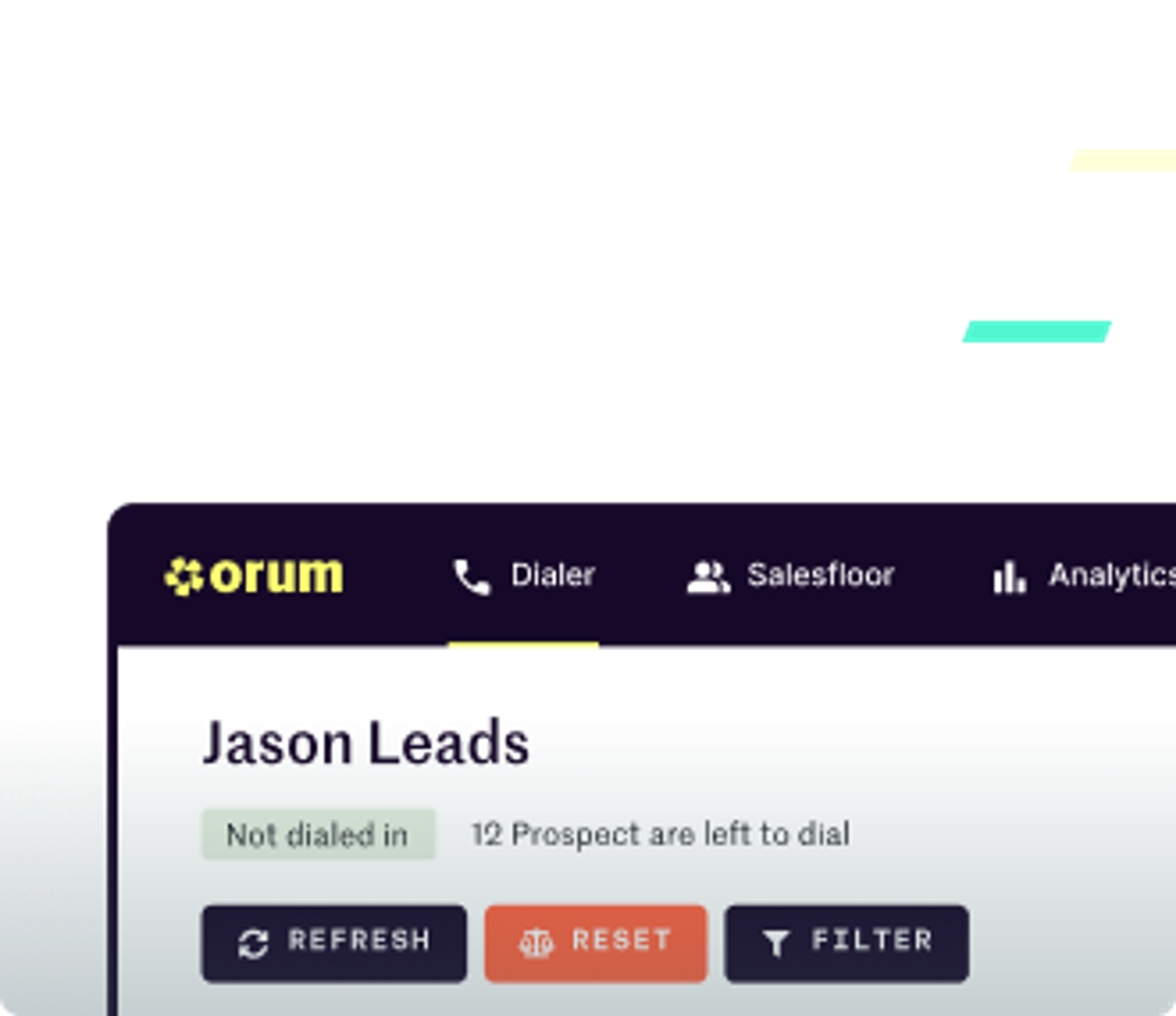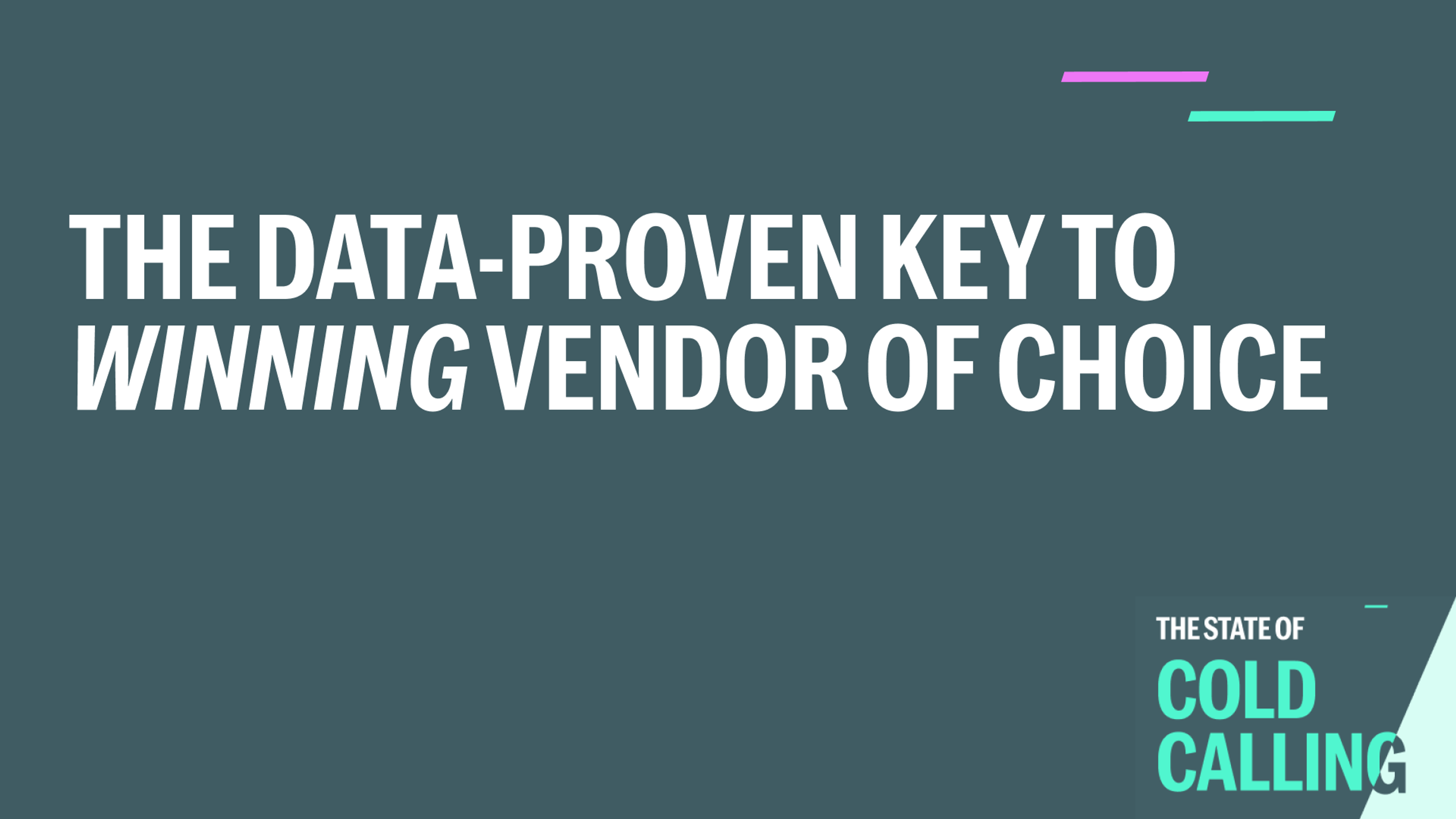Why your sales team needs an effective calling culture


You need to do more with less. Improving your calling culture is the answer.
Human connection is recession proof
In the last several years, the workforce experience across the globe has dramatically changed. Whether your team is remote, hybrid, virtual, or some combination of the three, the way we work today would be unrecognizable even five years ago.
These changes affect every aspect of your organization but perhaps the members most in flux are your salespeople. Sales representatives, account executives, and customer success teams are now expected to execute a holistic nurture and sales process. It’s now vital to offer curated end-to-end experiences for your prospects from their first contact point extending through the life of their contract.
Prospecting, marketing, and nurture processes have been substantially automated but the one thing that remains essential to succeeding in sales is creating a human connection with your prospects. Understanding their needs and highlighting your value proposition for their organization. And the best way to do that continues to be having real conversations instead of leaving all your touch points up to automatic processes.
Does cold calling really work?
In short, yes, but your sales reps need to be consistent with the process. When done correctly, and with the proper tools, cold calling can help you connect with a greater number of prospects than any other outreach method.
Cold calling enables you to reach a wider audience in a shorter period of time. Even if a meeting isn’t scheduled, reps can succinctly inform prospects about what your organization does and how it can be beneficial for their business in the future. Cold calling is an effective way to build relationships with potential customers, and by creating value-based conversations with prospects, you are able to establish yourself as a trusted authority in your industry.
Hitting the phones without proper guidance and guardrails can be a daunting task, which means it’s pivotal to establish not just a calling culture within your organization, but an effective one.
What is an effective calling culture & Why does it matter?
In-person meetings will always be the most effective way to identify physical communication cues and connect with others but these types of discussions are rarely feasible in today’s world. Therefore, the best way to build opportunities for your sales team is to consistently have conversations with prospects on a larger scale by building an effective calling culture in your sales organization.
It’s never been more important to have quality conversations with prospects. Budgets are tight & decision-makers are going to purchase based on trust and value. Value comes from your holistic selling, where your prospects can see case studies and data that proves how you can help their organization. Trust for prospects comes through conversations with your sales reps.
In a recent survey report from Cognism, data showed 70% of buyers will accept cold calls. They also noted that of the fifteen outreach methods they surveyed, three of the top five are directly connected to cold calling. Voice calls are businesses’ preferred communication channel for scheduling appointments. Additionally, phone-centric sales reps report 6.8 quality conversations per day, and email-centric only 3.3. While these numbers clearly show the benefits of cold calling, 63% of sales reps don’t enjoy the cold calling process.
Why do sales reps shy away from cold calling?
The answer lies in a lack of a healthy calling culture at their company. When you build a phone-based culture within your sales organization, you give your reps greater confidence in their calling process which, in turn, helps them to build that necessary trust with prospects.
The more at-bats reps have on the phone, the better they are at identifying prospect needs and relating how your product provides the best solution. Over time reps will improve their objection-handling skills and become more comfortable with advancing conversations beyond a script and really listening to the challenges prospects are facing.
What does a healthy calling culture look like?
The first thing to understand about building a calling culture is that you can, in fact, do it wrong without realizing it. Many organizations think they have an effective calling culture because they have call tasks included in their daily activity KPIs and, perhaps, they have calls as a part of their campaign sequencing. While this does establish calling as part of your sales reps’ work, it doesn’t necessarily mean your calling culture is an effective one.
An effective calling culture is one that features success metrics that go beyond just total calls. It’s a culture where one-on-one meetings are centered around call coaching and improving objection handling. A thriving calling culture doesn’t just have call dispositions, it includes clear and defined dispositions that let others know about the status of that specific prospect.
A healthy calling culture emphasizes frequent coaching opportunities, including managers listening to live conversations, as well as hosting frequent call reviews where reps have the opportunity to break down their call blitzes to discuss and dissect their wins and rejections in a psychologically safe environment. Sustaining this type of team culture means gamifying the call process and making it something reps look forward to.
Effective sales managers need to make their teams understand that prospecting and list building are vital aspects of the calling process and will lead to greater success. Additionally, a key factor in maintaining an effective calling culture is documentation. We referenced above the importance of detailed call dispositions, but documentation must go even further to build a healthy and sustainable sales process.
By building a system where call dispositions are documented along with what follow up content has been provided to prospects and the current status of where they’re at in the sales funnel, each progressive conversation can extend the value proposition for the prospect. Documentation should also include key steps for list creation and call sequencing so your new sales reps can quickly be onboarded.
Psychological safety is pivotal for healthy calling cultures
Cold calling, and sales in general, is a numbers game. It’s also a situation where failure is a natural part of the process. Industry standard benchmarks show that cold calling yields a 2% success rate. Sales reps using Orum in 2022 saw a 6.5% success rate in converting their cold calls to meetings but even those numbers mean you’re going to hear the word “no” a lot.
This isn’t meant to detract reps from hitting the phones, but the best sales leaders will establish early and often that failure is part of the process. Building a psychologically safe space for sales reps assures that they learn from their failures and improve their tactics.
When it comes to those on the frontline of your sales process, psychological safety means not being afraid of failing. Reps should be comfortable speaking up in call review sessions about their wins and their losses.
Psychological safety helps motivate reps to keep hitting the phones not just on the positive days but on the challenging ones as well. It helps build communicative teams who are much more willing to connect on strategy, objection handling, and lift each other up to celebrate wins.
How can an effective calling culture drive business?
As mentioned above, leads that are generated via cold calling are created at a higher rate than other outbound efforts and, when done with automation tools, they're done more efficiently as well. This means the revenue generated from those leads is, quite literally, worth more. Because cold calling results in a greater number of actual conversations, your reps are also able to increase the number of personal connections they create.
These connections create more meetings and establish a communication chain for prospects as they become clients. Your sales reps are able to offer more detailed discussion notes to your customer success team which makes for a smoother onboarding and ramp up process for new clients. The quicker a customer sees a return on investment from purchasing your product, the more likely they will be to expand and renew the contract.
The success of a new client may not be determined directly from the fact that they were established as a prospect via cold calling. However, by establishing a strong relationship and line of communication through this type of prospecting, your sales reps establish a rapport with those organizations. They have a deeper understanding of their goals and what the specific value proposition of your product is for their company. This, in turn, means your customer success teams are able to handle any obstacles or roadblocks that occur during the life of their initial contract and are better prepared to drive growth for the customer.





